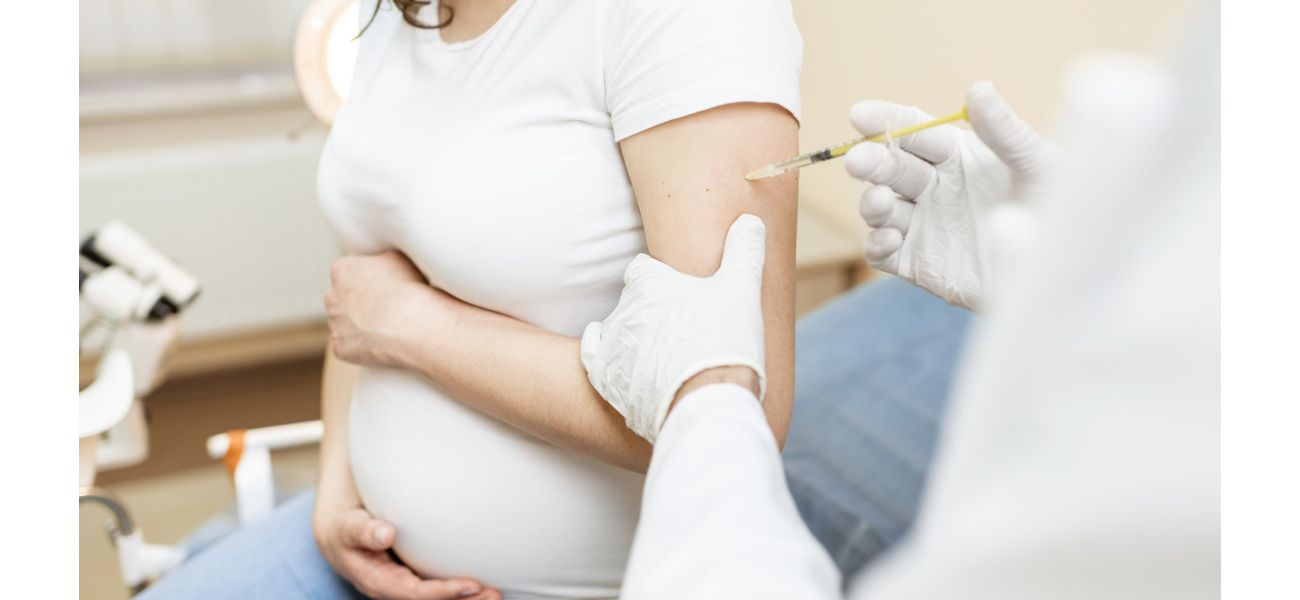Learn about the latest RSV vaccine released this month in just a few words.
RSV affects 20,000 infants annually and causes 20-30 deaths.
September 2nd 2024.

Starting this fall, pregnant women will now have the opportunity to receive a new vaccine that aims to protect both them and their babies from a potentially deadly virus. The NHS has officially introduced the vaccine, which targets respiratory syncytial virus (RSV) and is available to pregnant women and some older adults at risk.
RSV is a common virus that can cause cold-like symptoms in most people, but can lead to serious respiratory infections in some, especially in babies, premature infants, and those with preexisting health conditions. According to NHS data, there were an average of 146 young children hospitalized with RSV each day during the peak of last winter, a significant increase from the previous year. The new vaccine program hopes to prevent thousands of hospitalizations and ease the pressure on the NHS during the winter months.
So who is eligible for the RSV vaccine? Pregnant women can receive it starting at 28 weeks of each pregnancy, providing protection for their babies for the first six months after birth. Additionally, adults turning 75 on or after September 1 will also have access to the vaccine. For those who turned 80 on or after September 1, the vaccine will be available until August 31, 2025. However, those who turned 80 before September 1, 2024 are not eligible for the vaccine.
If you fall into one of these eligible categories, you can receive the vaccine from your GP or maternity service. Pregnant women are encouraged to mention the vaccine to their healthcare providers if they have not yet been offered it by 28 weeks.
RSV can be very serious, especially for the youngest and oldest members of society, causing breathing problems and even death. Health minister Andrew Gwynne shared the heartbreaking story of his grandson, who was just weeks old when he contracted RSV and had to spend two weeks in intensive care. Gwynne stressed the importance of the vaccine in preventing such tragedies, stating that about 20,000 babies are hospitalized with RSV each year, and 20-30 of them do not survive.
RSV is primarily spread through coughs and sneezes and typically peaks during the winter months. While older children and middle-aged adults may only experience it as a cold, it can be life-threatening for babies and older adults with vulnerabilities. Regular hand-washing may not be enough to prevent RSV, which is why the government is urging eligible individuals to get vaccinated.
Like all vaccines, there may be some side effects, but they are generally mild. In the US, where the vaccine has already been rolled out, the most common side effect reported was soreness, redness, or swelling at the injection site for a day or two. A rare nervous system condition was also reported, with about 5 cases per million doses given. However, experts stress that the benefits of the vaccine far outweigh any potential risks.
Health minister Andrew Gwynne emphasized the importance of the RSV vaccine in freeing up hospital beds and resources during the winter months, stating that thousands of hospitalizations and deaths from RSV-related illnesses can be prevented. Professor Dame Jenny Harries, chief executive of the UK Health Security Agency, also highlighted the benefits of the vaccine in protecting the most vulnerable and easing the burden on the NHS. She urged eligible individuals to also consider getting vaccinated against the flu and Covid-19 to protect themselves and those around them. As we head into the winter season, it is crucial to take advantage of all available vaccines to keep ourselves and our communities healthy.
RSV is a common virus that can cause cold-like symptoms in most people, but can lead to serious respiratory infections in some, especially in babies, premature infants, and those with preexisting health conditions. According to NHS data, there were an average of 146 young children hospitalized with RSV each day during the peak of last winter, a significant increase from the previous year. The new vaccine program hopes to prevent thousands of hospitalizations and ease the pressure on the NHS during the winter months.
So who is eligible for the RSV vaccine? Pregnant women can receive it starting at 28 weeks of each pregnancy, providing protection for their babies for the first six months after birth. Additionally, adults turning 75 on or after September 1 will also have access to the vaccine. For those who turned 80 on or after September 1, the vaccine will be available until August 31, 2025. However, those who turned 80 before September 1, 2024 are not eligible for the vaccine.
If you fall into one of these eligible categories, you can receive the vaccine from your GP or maternity service. Pregnant women are encouraged to mention the vaccine to their healthcare providers if they have not yet been offered it by 28 weeks.
RSV can be very serious, especially for the youngest and oldest members of society, causing breathing problems and even death. Health minister Andrew Gwynne shared the heartbreaking story of his grandson, who was just weeks old when he contracted RSV and had to spend two weeks in intensive care. Gwynne stressed the importance of the vaccine in preventing such tragedies, stating that about 20,000 babies are hospitalized with RSV each year, and 20-30 of them do not survive.
RSV is primarily spread through coughs and sneezes and typically peaks during the winter months. While older children and middle-aged adults may only experience it as a cold, it can be life-threatening for babies and older adults with vulnerabilities. Regular hand-washing may not be enough to prevent RSV, which is why the government is urging eligible individuals to get vaccinated.
Like all vaccines, there may be some side effects, but they are generally mild. In the US, where the vaccine has already been rolled out, the most common side effect reported was soreness, redness, or swelling at the injection site for a day or two. A rare nervous system condition was also reported, with about 5 cases per million doses given. However, experts stress that the benefits of the vaccine far outweigh any potential risks.
Health minister Andrew Gwynne emphasized the importance of the RSV vaccine in freeing up hospital beds and resources during the winter months, stating that thousands of hospitalizations and deaths from RSV-related illnesses can be prevented. Professor Dame Jenny Harries, chief executive of the UK Health Security Agency, also highlighted the benefits of the vaccine in protecting the most vulnerable and easing the burden on the NHS. She urged eligible individuals to also consider getting vaccinated against the flu and Covid-19 to protect themselves and those around them. As we head into the winter season, it is crucial to take advantage of all available vaccines to keep ourselves and our communities healthy.
[This article has been trending online recently and has been generated with AI. Your feed is customized.]
[Generative AI is experimental.]
0
0
Submit Comment





